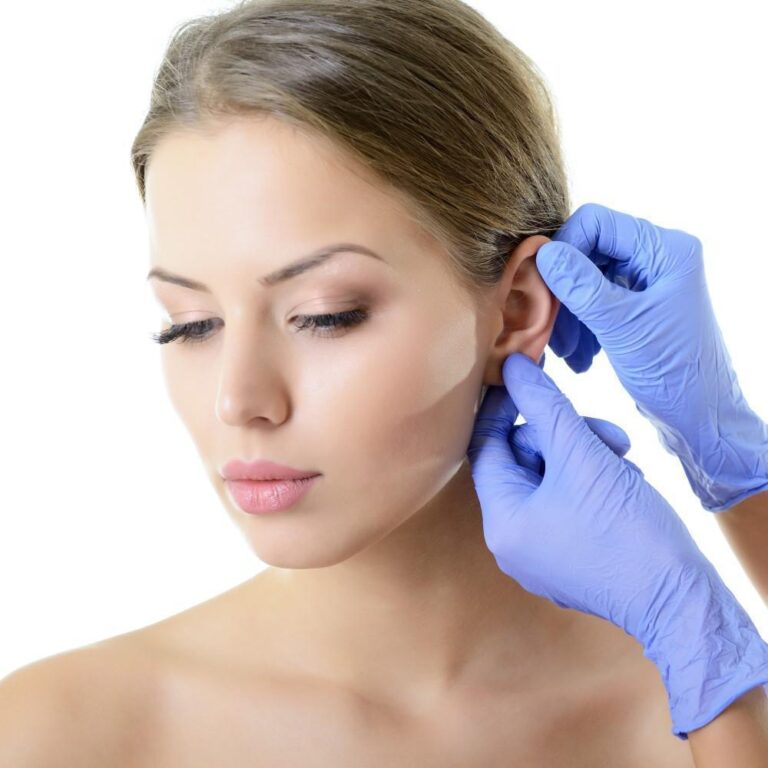How to Plan, Prepare, and Recover from a Breast Augmentation
Plastic surgery of any kind is a big step, and we want to make sure...
Living with ears that stick out and draw negative attention can wear down your self-esteem and confidence. If you’ve finally decided to do something about it, you’re probably excited about seeing the results, but you likely also have questions about how you’ll feel and look once the procedure is complete.
We understand. Dr. Kiran Polavarapu here at Polavarapu Plastic Surgery in Fort Worth, Texas, has many years of experience performing ear surgery (otoplasty) on children and adults, and wants you to be fully informed about what to expect from your cosmetic procedure. Here’s a closer look at what happens after otoplasty.

Before we dive into what you can expect after your ear surgery, it’s important to understand that every person responds differently to every treatment and surgery. More than 53,000 people opt for ear surgery every year, and each one is different. Knowing that, we come alongside you throughout your otoplasty journey, from your in-depth pre-surgery consultation to the final day of your recovery, guiding you with customized aftercare instructions that take into account your unique health and physical attributes.
When your general anesthesia wears off, and you begin to wake up, you’ll feel a bit groggy. The first thing you notice may be the bulky bandage around your head. We placed it strategically to protect your fragile new ears and keep them in the right position as they heal.
As the anesthesia fades, you may begin to experience some discomfort, throbbing, and mild pain. Often, this can be relieved by over-the-counter medication, but we may prescribe something stronger if you need it.
After a couple of days, we replace your bulky bandage with a smaller version. And about a week after your surgery, the bandage comes off, and you can go back to work or school. Healing continues for several months, and your incision scars — although well hidden by Dr. Polavarapu’s skilled technique — begin to fade, making your ears look and feel normal again.
There are things you can do to help the healing process along. Here are some tips for a successful recovery from otoplasty.
Good blood flow is essential for the healing process, and you can promote this by keeping your head elevated as much as possible for a few weeks after your surgery. Prop up your pillows to ensure your head stays tilted upward when you sleep. This also aids in keeping inflammation down.
While you have bandages wrapped around your head, it’s important to keep them clean and dry to avoid skin damage and possible infection. If you use ice to address inflammation and discomfort, make sure it doesn’t dampen your bandages.
While ice is a good aid for inflammation and pain, don’t leave it on too long. Your ears will be a bit numb after your surgery, and you may not feel the effects.
The same holds true for heat. Avoid overheating in the sun and engaging in activities that raise the temperature, such as using a hairdryer, while you’re healing, to keep inflammation down.
While your ears are healing, think about your clothing choices, and choose garments that you can remove easily without disturbing your bandages. Button-ups are better than pullovers, and watch out for zippers and buckles.
If Dr. Polavarapu prescribes medication or a topical ointment, make sure you follow the instructions precisely to stave off infection and relieve your discomfort in the days and weeks ahead.
After any surgery, it’s important to modify any extreme activity — think, weightlifting and strenuous workouts. Your body needs downtime to heal properly.
Because you and Dr. Polavarapu discuss in detail what you want from your ear surgery, you can expect excellent results that boost your confidence and stop the stares and comments you once dealt with because of your prominent ears.
To learn more about what otoplasty can do for you, schedule a consultation with Dr. Polavarapu online, or call our friendly staff at 817-615-8576 today.
Plastic surgery of any kind is a big step, and we want to make sure...
When you want to get a flatter, smoother stomach, it can be confusing trying to...
Perhaps you’ve already decided to have a cosmetic procedure, or maybe you’re still exploring your…